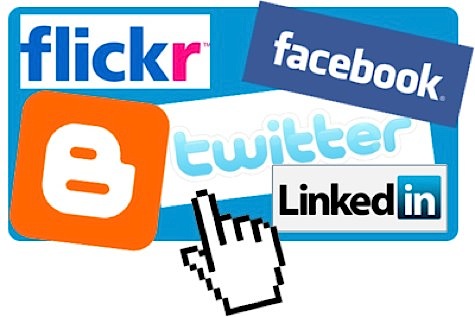
Top 5 Reasons to Network Online
 Professional online networking plays a vital role in the success of organizations in many industries because it changes the way people communicate. Networking changes the way others interact with brands and products they find useful. It also helps to evaluate products previously used.
Professional online networking plays a vital role in the success of organizations in many industries because it changes the way people communicate. Networking changes the way others interact with brands and products they find useful. It also helps to evaluate products previously used.
Why and how should you influence this trend?
1. Users trust their network, not vendor advertising or marketing techniques.
This is one of the most accepted changes created by Web 2.0. People rarely trust a company’s marketing message anymore for large purchasing decisions. This is especially true when their company’s name and reputation are on the line. They trust their colleagues, “friends”, and networking affiliates who have successfully used the products in question. The “friends” may be other members of an online community, or they may be strangers who posted product reviews. Your reaction should be “Stop the press, and get into the conversation.”
2. Users expect others to talk.
This is particularly true for late generation X and early generation Y, better known as Millennials. Those climbing to higher positions on the company ladder grew up in a world where interactive, shared media is all they know. When this crowd (who makes up 59% of the workforce) gets online, they expect to interact with each other and not be fed a webpage to read. Since 59% of Millennials are potential decision makers, companies need to interact with them.
3. The crowd has the influence.
People who have a great experience with technology speak much more readily about their bad experiences. And since news travel fast, companies have to respond by: 1) listening to the problem; 2) joining the conversation; and 3) fixing the problem. To maintain professionalism, do not get defensive or deny the problem. Rather, explain why it is that way, and/or acknowledge the feedback as helpful guidance for product improvements.
4. User produced content has more value than you think.
Though it may give journalists, authors, and speakers competition, user content is a good thing. Encourage your customers to share their expertise and opinions. This can be especially useful if: 1) they use and like your product; 2) you want to learn what consumers think of your company and its offerings; and 3) you want to learn what customers would like to see from you in the future. Remember, when current users talk, prospective users listen.
5. Customers say what they want, so listen.
In a Web 2.0 atmosphere, companies get to absorb a wide range of influencers expressing their opinions, needs, and wishes. When a company proactively listens to what their audience is saying, they can innovate faster and more intelligently than their competitors. This will not only put you and your company in the ring leader circle, but will achieve positive word of mouth.
By way of example, this page at LinkedIn shows where IRI shares and gains knowledge about data management topics via an interactive online forum. Please connect with us there to join the conversation and share your thoughts!










